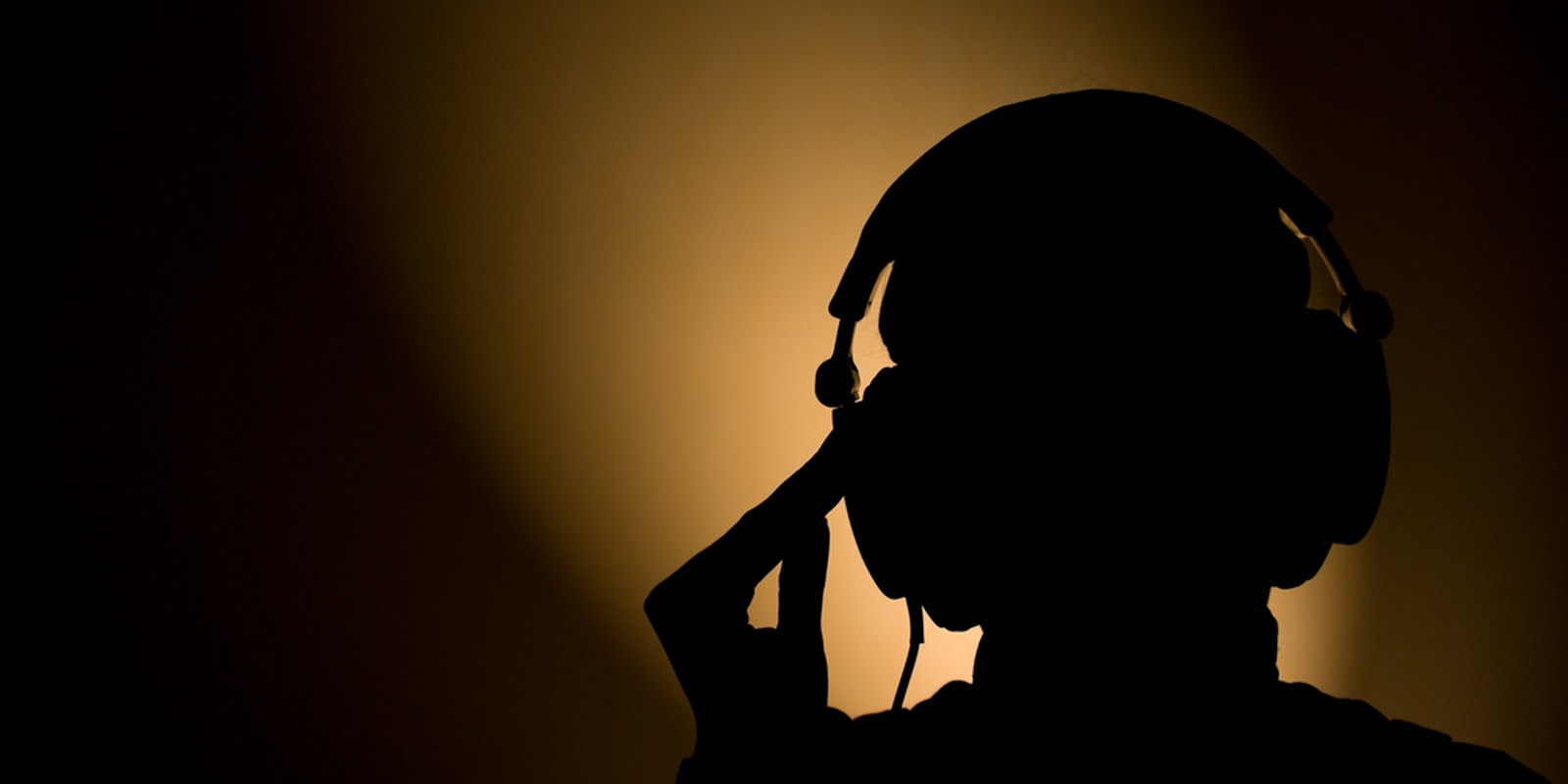Damn Interesting, a long-running website devoted to unusual history and science stories, has accused The Dollop, a popular comedy podcast, of wholesale plagiarism in five of its episodes.
In an open letter published Thursday on the Damn Interesting website, founder and editor Alan Bellows comments that the podcast has borrowed substantial material from his site and that although this is not the first time it has happened, he believes it is the most egregious.
“(Y)ou are the first I am aware of,” he writes, “who allows your audience to believe that you wrote the material yourself, elevating mere copyright infringement to plagiarism. Then you go one step further and ask for (and receive) thousands of dollars in recurring monthly donations to support your allegedly ‘endless research.’”
The Dollop is co-hosted by comics Dave Anthony and Gareth Reynolds. Each episode consists of Anthony reading a story of (usually) American history and Reynolds reacting, with both of them riffing on the usually outlandish or horrible actions and statements of those involved in the stories.
Past stories have included frontiersman Hugh Glass, prohibitionist Carry A. Nation, baseball player Rube Waddell, and surgeon John R. Brinkley.
Bellows published parallel columns of scripts from five Dollop episodes and five articles published on Damn Interesting, highlighting sentences and entire paragraphs that seem to be identical.
Bellows made the letter public and apprised Anthony and Reynolds of his accusations in a tweet. Anthony made a rather vague mention of an issue that he would be addressing in a post on the Dollop’s Facebook page.
“You’ll probably see some trolling posts from a website today,” he wrote. “Don’t respond. We don’t attack as a pack. It’s not how things should be done. Just hang and we’ll post our official response later.”
That did not stop partisans of both the Dollop and Damn Interesting from being surprisingly unpleasant across social media, despite both Anthony and Bellows making obvious efforts to address the issue with as much respect as each could muster for the other.
Podcasting continues to get more and more popular. A large part of that is the doing of comics and other entertainers turning to the medium to directly reach their fans and potential audiences without the meddling of middlemen. Podcasts are popular enough that President Obama’s people approached Marc Maron to arrange an appearance by the most powerful man in the world on Maron’s WTF podcast, recorded in the comic’s modest garage.
Anthony is a prominent personality in the podcasting community. He is a writer and co-star on IFC’s Maron, the co-founder of the Los Angeles Podcast Festival, and the former co-host with Greg Behrendt of the Walking the Room podcast. The Dollop is very popular, not just among American listeners, but in Australia, where he and Reynolds have performed, and where they are planning a podcasting tour.
Between the increasing importance of podcasts and Anthony’s prominence, not to mention Damn Interesting’s venerability—it’s been publishing since 2005—this disagreement is weightier than a fight over proper attribution between unknowns.
Anthony responded to Bellows’ letter with one of his own today on the Dollop’s Facebook page.
“I will admit to making a mistake here that has led to this situation.” Anthony wrote. “And it’s a Dollop worthy mistake. While every story is sourced, I have not posted them because we have had no official website. I now have one and am putting up all the sources and creating links of the episodes. I apologize for this.”
But the Dollop, Anthony said, though guilty of not taking care to make proper attribution, is not guilty of plagiarism or copyright infringement, for one simple reason.
“When a teacher discusses a news article in their classroom, that’s fair use. When Jon Stewart uses Fox News clips on the Daily Show, that’s fair use. When a documentary shows part of a copyrighted film or shows some copyrighted text, that’s fair use. Fair use doesn’t require seeking permission in advance. Fair use allows for criticism, commentary, parody, and satire, which is The Dollop.”
Furthermore, Anthony makes the case that, given the way the information is delivered on the podcast, there is no attempt made to represent the information as his own.
“It’s clear that I’m reading the words of other people, through my tone of voice, my constant referring to reading something, and my endless mispronunciations. Plagiarism would be me representing those words as my own, and I’ve never done that.”
Nonetheless, Anthony apologized again and committed to being more conscientious about attribution beginning with the publication of a Dollop Sources page. What seemed to rub Anthony the wrong way was not the objection itself but how and where it was registered.
“I’ve been speaking to Alan,” Anthony told the Daily Dot. “We have an understanding, I like him, and this is all being worked out between us the way it always should have been—in private. The Internet can find another battle and lives to destroy. But maybe everyone should go read So You’ve Been Publicly Shamed by Jon Ronson first and think about what we’re doing to each other.”
This incident provides a lesson in how different the expectation are between different parties on the Web, even those like writers and comedians that consumers might expect to react the same way, as well as how complex issues of attribution and copyright are online, where things move fast and little is static.
It also shows how quickly we arrive at conclusions and take sides online, sometimes to the detriment of an otherwise mutually beneficial agreement.
Expect additional clashes of this sort as satire, criticism, social commentary, and humor intersect journalism, essay writing, original reporting and research, and lyric exposition—all played out in the dynamic, immediate, and emotionally charged environment of social media.
Correction: The Dollop has been accused of plagiarism in five of its episodes.
Photo via Philippe Put/Flickr (CC BY ND 2.0)

